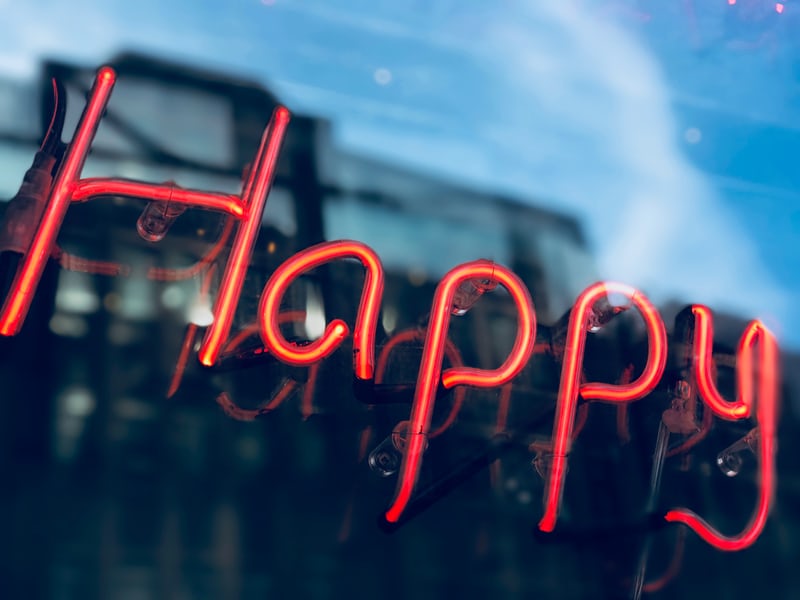 Emotional Scientist and Keynote Speaker Dr Marc Brackett says our emotions have information. Our feeling are influencing us. We need to listen.
Emotional Scientist and Keynote Speaker Dr Marc Brackett says our emotions have information. Our feeling are influencing us. We need to listen.
The question we are all asked more than any other is, How are you? The glib answer we throw around is the same every time. I'm good. But how can you always be good? You aren't. It's just people don't want to know if you're not good.
If you are looking for a way to repel people, tell the truth.
Talk about the headache that won't leave you alone, the wretched churning in the pit of your stomach or the feeling of sadness that's blanketed you for the last few days.
Nobody wants to hear about the real pain that haunts you. It's too complicated. It would dampen the mood; it would slow us down. One of the reasons we don't answer this genuinely is because these three words make up the most complicated question.
So really, how are you? Stop and answer this question, genuinely. This requires you to slow down and look inside yourself. Any other question during your day you can check your notes, find guidance from a colleague or ask google.
To answer this question, you have to probe inside yourself and ask this unseen intelligence what's up. You have to feel, then think.
To climb outside yourself, you have to start asking yourself this question. A lot. The wisdom this question reveals will unlock so much natural intelligence. It will also lead you to the present moment.
The first part of your climb is to check in regularly and notice how you are feeling. Most of us have a strong history of pushing our emotions away. It's a persistent habit that's been passed down through our family and reinforced through life.
Now we want to see our feelings. You don't have to assess them, box them up or manipulate them, see them.
OPEN THE DOOR TO FEELINGS
Notice when stress and pain have arrived at your door.
It's like that friend lurking at your doorstep. There is no doorbell to let you know he's here. Instead, he will keep knocking from the outside, disturbing your peace inside. So you have to keep checking the door from time to time to see who's there. Begin the habit of checking in with yourself and notice who comes to visit. Notice when there is stress, resentment or any pain at your door. Your temptation will be to ignore it or bury it because it's always inconvenient. Don't.
Several times a day, stop and ask yourself how you are feeling. Roam inside your body for answers. Notice the pain radiating from your shoulders and neck. Notice the distracting essence of your thoughts, your speedy heart rate, the tightness in your throat, the off-balance irritation that nudges you to listen. Just be aware. Don't judge it or attach it to any event or situation. Just be with it for a few moments and let it go.
Later in the chapter on emotions, we will learn how to climb out of the most persistent and painful feelings. But for now, notice.
You have to find your emotions to release them. When you repress emotions, you unconsciously avoid them. You will have a routine of pushing them away. Sometimes it's an excellent short term solution.
As a keynote speaker, just before a talk, anger is not a good emotion to engage. It will fire me up, but not in the right way. Thus I would notice for a moment and decide to suppress it. Pushing it aside allows me to continue as they introduce the keynote speaker.
ANGER VS ANXIETY. WHAT'S THE DIFFERENCE?
Later, in my hotel room, I would go back and probe at my anger. I'd tease it apart from other emotions. For instance, anger and anxiety are similar but very different. Anger is about injustice. It rises out of an inkling you are mistreated. It's a natural response to a perceived threat.
If I get a whiff that circumstances are swinging out of my favour, I feel anger grip me from the inside out. The irritation causes your body to release adrenaline and muscles to tighten up. Being angry can help you get what you want. Just think of the last time someone threw an angry rant. Did it help them in any way? I find most people who display anger get attention, and often the circumstances work out in their favour.
Anxiety anticipates the future.
Wrapped around uncertainty, anxiety role is to protect you. It does this by making it very uncomfortable to move forward. It will fill you with fear and self-doubt until you relent and give in.
It stops you from doing things you enjoy. It can be intense and debilitating. Anxiety usually overestimates a threat or underestimates my ability to deal with it. However, I'm onto it, and I don't let it hold me back. I notice it and listen to it instead. As a funny motivational speaker, I have a close relationship with anxiety. It's scared me into the shadows more time than I can remember. Thankfully I also have a lot of courage and humour to keep moving forward.
Before a speech, I don't have time to deal with these emotions, ( and it wouldn't help a keynote speaker to do this) so I suppress them. Later, I've learned to guide my attention back to the suppressed emotion. You can see there is essential information in teasing the feelings apart. Anger relates to a situation that needs my attention.
Anxiety is nudging me to prepare for the worst. I know it overestimates danger and I know how to diffuse it.
Anger and anxiety are different experiences with some overlap. It's important to know what emotions exist inside you. Your insides are bossing your outsides around, and you need to pay attention.


